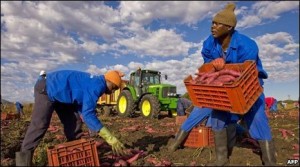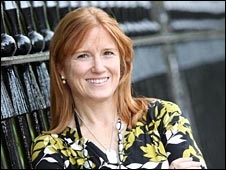BBC | 5 August 2009
By Katie Hunt
Business reporter, BBC News Long of little interest to outsiders, African land has been rarely associated with financial reward. But for investors like Susan Payne, the chief executive of Emergent Asset Management, farmland in sub-Saharan Africa is a hot bet. Population increase, changes in eating habits and demand for bio-fuels are putting farmland at a premium worldwide. "And African farmland prices are the lowest in the world," she says. Her fund is in the process of buying or leasing a total 50,000 hectares, equal to roughly 80,000 football pitches, in several African countries including Mozambique, South Africa, Botswana, Zambia, Angola, Swaziland and the Democratic Republic of Congo. Ms Payne says the investment leads to better harvests and creates jobs. But some land deals have sparked accusations that foreign investors, corporations and countries are engaged in a damaging "land grab" in Africa and a new form of colonialism. Food security Last year's food price crisis, which triggered riots in a dozen countries, has made governments more focused on the security of their food supplies. Countries short of arable land, such as China, Saudi Arabia, South Korea and Kuwait, have been seeking agricultural investments in Africa. "This has woken people up to political issues surrounding food and agricultural land ownership," says Ms Payne. "As an investor you can take advantage of that," she says. Ms Payne says that the investments made by her company are welcomed and is confident that charges of land grabbing won't stick. "Frankly we are seeing amenable terms because local groups, including governments, want us there," she says. "We are not bringing in our own farm workers and then taking the food and exporting it." She says local communities benefit from access to new farming techniques, new seeds and technologies, as well as the above-average wages paid by Emergent's local partner. For now the vast majority of the food produced stays in the country in which it is produced, although it can be exported. "There is a lot of enthusiasm for this and there should be," she says. "Without private pools of capital like we are providing, there will not be the jump-start to get Africa growing rapidly in agriculture - and frankly - any other sector." Politicised Nonetheless, it is a highly politicised arena to invest in. South Korean firm Daewoo Logistics was forced to abandon a project to lease one million acres of land in Madagascar to produce corn earlier this year. The country's new president scrapped the deal following criticism that local people had not been consulted, and Daewoo was unsettled by unrest in the island state But Ms Payne says the risks to investors are overplayed and such views are based on an outdated view of African governments. She says that 70% of African governments are democratically led and their economies are much better regulated than in the past. "We only operate in counties where we can have clear land title. If we can't get this, or we don't have a 99-year lease from the government then we won't operate in that country," she says. Land rights hazy However, the UN and other agencies warn that smallholders, who often don't have formal rights to the land they farm, can end up being short-changed.|
LAND PRICES PER HECTARE
Sub-Saharan Africa - $800 to $1000 Poland - $6000Argentina/Brazil - $5,000 - $,6000 US - $7000UK - $18,000 Germany - $22,000Source: Emergent Asset Managment |















